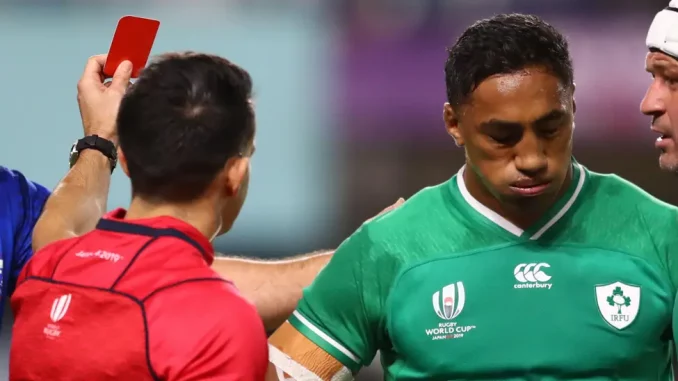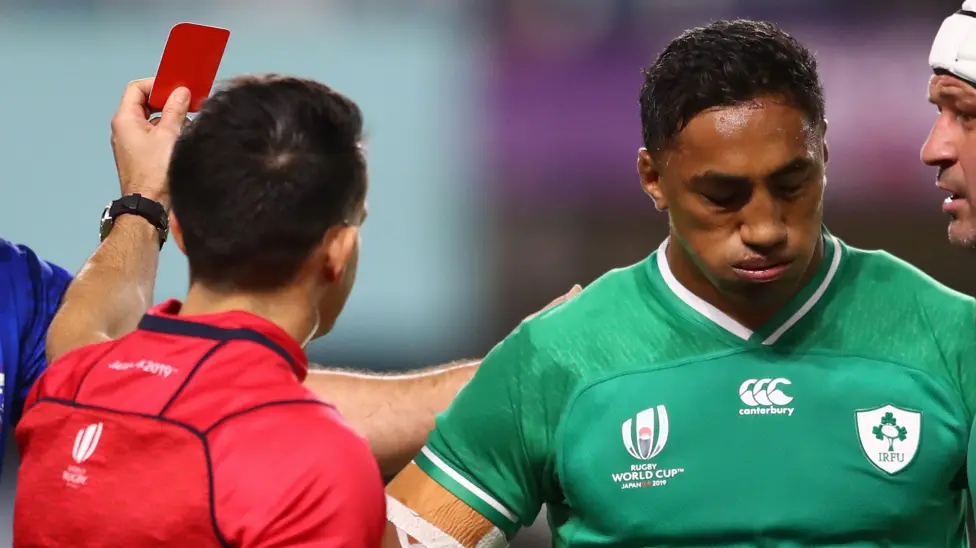

The Irish Rugby Football Union (IRFU) has made its stance clear on one of the sport’s more contentious ideas: the proposed 20-minute red card rule. As debates rage within rugby circles about how best to maintain both the physical and competitive aspects of the game, the IRFU has stood firm in opposition to the initiative, citing concerns over player safety and the overall integrity of the sport.
The proposal, championed by some, would see a reduction in the length of time a team is left shorthanded following a red card, from the remainder of the game to a mere 20 minutes. After this period, the team would be allowed to replace the offending player, restoring them to full strength. The intention behind the change is to ensure that matches remain competitive, even when a player has been sent off, preventing one team from being overly disadvantaged for the rest of the match due to a momentary lapse or mistake.
The IRFU’s resistance to the proposed change is rooted in concerns about player welfare. The organization, like many others across the sport, has been grappling with the increasing awareness of the long-term effects of head injuries and dangerous play in rugby. In recent years, there has been growing scrutiny on the enforcement of rules around high tackles, reckless play, and foul behavior, with stricter penalties, including red cards, used to deter unsafe conduct on the field.
The 20-minute red card, critics argue, sends the wrong message. Instead of reinforcing the need for discipline and safety, the reduced sanction could potentially lead to more reckless behavior. The IRFU believes that players and teams need to be held accountable for their actions, especially when it comes to dangerous play. A full-match penalty for a red card serves as a stern reminder of the consequences of poor decisions, which can sometimes have lasting impacts on opponents.
Supporters of the 20-minute red card, however, argue that it allows for a better balance between enforcing rules and maintaining the competitive nature of the game. They suggest that current red card rules often result in one-sided matches, where a team reduced to 14 players has little chance of winning. They claim this diminishes the viewing experience and potentially harms the sport’s appeal to fans and broadcasters.
But the IRFU doesn’t believe entertainment should come at the cost of safety or fairness. According to sources within the union, the current rules strike a fine balance between ensuring the game remains competitive and protecting players from injury. The IRFU is concerned that a 20-minute punishment may be seen as too lenient for serious offenses, particularly those involving head contact or dangerous tackles, which are already a significant issue in modern rugby.
The core of the IRFU’s argument centers on the growing focus on player welfare. Rugby is a high-impact, physical game, and with the increase in knowledge about concussion and its long-term effects, the union is keen to ensure that safety is prioritized. Officials argue that reducing the punishment for dangerous play could set a dangerous precedent, potentially undermining efforts to make the game safer for everyone.
In its current state, rugby is undergoing significant changes to improve the protection of players. The introduction of stricter head injury protocols, enhanced education for players and coaches, and the increased scrutiny on foul play are all part of an effort to evolve the sport in a way that ensures its future health and popularity.
The debate over the 20-minute red card is likely to continue, with both sides offering compelling arguments. For now, the IRFU has made its position clear: the organization does not support the introduction of the 20-minute red card, believing it would undermine the sport’s safety standards and fail to properly penalize dangerous play.
As discussions continue in rugby’s global governing bodies, the balance between maintaining player welfare and keeping the sport entertaining and competitive will be a key point of contention. For the IRFU, however, the priority remains clear: protecting the integrity of the game and ensuring that player safety is not compromised for the sake of spectacle.
Leave a Reply